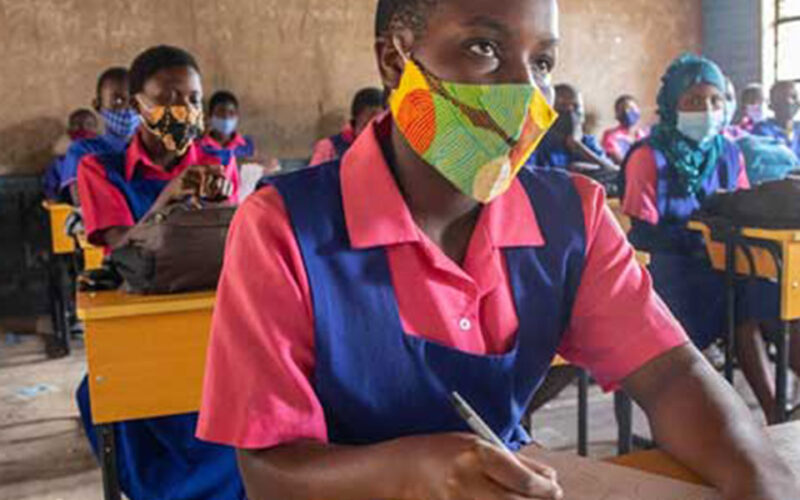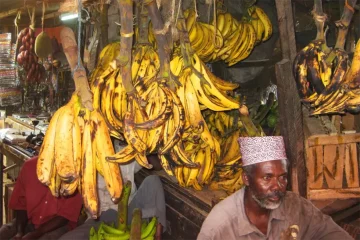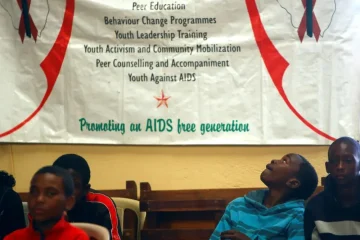RESEARCHERS from South Africa, the UK, and Brazil recently conducted a study on the impact of COVID-19 on children and young people, particularly those from disadvantaged households. Their research highlights that the pandemic has deepened existing inequalities, with children and young people’s voices and needs not being considered in policy decisions.
The study conducted by researchers from the University of the Free State (UFS) and the University of Fort Hare in South Africa; the University College London, the University of Birmingham, and Nottingham Trent University in the UK; and the University of São Paulo in Brazil, found that pandemic policy decisions largely ignored young people’s needs, resulting in long-term losses.
The report, titled International and National Overviews of the Impact of COVID-19 on Education, Food and Play/Leisure and Related Adaptations, outlines how slow government action and policy gaps in efforts to stop the spread of COVID-19 have had a negative impact on children and young people’s health and welfare.
South Africa has been one of the countries hardest hit by COVID-19, and the study shows that due to social isolation and economic disruption caused by lockdowns, children and young people’s education has been stunted, their access to nutritious food has been reduced, and their ability to develop socially through play has been significantly restricted. The impact was worst for those living in disadvantaged poor households.
The study, which is part of the first stage of the PANEX-Youth research project, is divided into two volumes: the ‘Long Report’, highlighting the wider impact of the pandemic on children across the world, while the ‘Short Report’ drills down on the impact on three countries, namely the UK, South Africa, and Brazil.
Further insights from the study show that the digital divide has compounded educational inequalities as education has moved online during the pandemic, with households and regions with insufficient internet access falling behind. Collectively, and combined with the continuing cost-of-living crisis, the researchers believe that these disadvantages are likely to have detrimental consequences for children and young people in the short and long term, with many not yet visible.
The team – which includes UFS researchers, Dr Abraham R Matamanda, Senior Lecturer in the Department of Geography, and Prof Lochner Marais, Head of the UFS Centre for Development Support – expects that policy gaps during the pandemic will negatively impact young people’s professional life trajectories, healthy lifestyles, mental well-being, educational opportunities, and self-confidence.
The team put together five recommendations to ensure that children’s well-being is incorporated into any future pandemic planning. These suggestions include:
- The need to keep children and young people at the centre of pandemic preparedness efforts.
- More priority and attention given to the hidden voices and experiences of young people, particularly those from monetary poor households.
- Greater recognition that schools play an important, central role as life and care hubs.
- Greater recognition of play and leisure as rights that are fundamental to children and young people’s development.
- More structured and systemic responses to multiple dimensions of risk from local and national responses are recommended, based on a rigorous assessment of what worked and failed during the pandemic.
Prof Lauren Andres, Professor of Planning and Urban Transformations at the University College London – also the lead author of the report – said: “COVID-19 exposed and exacerbated inequalities that already existed prior to the pandemic. Children and young people’s voices and needs were not heard and accounted for. Our research shows that because of policy gaps and slow government action during the pandemic, disadvantaged children and young people are now facing serious consequences that could be with them for a long time, both here in the UK and around the world.”
According to Dr Matamanda, “The COVID-19 pandemic showed the lack of understanding of what children and young people need in their daily lives. During the pandemic, the rights of children and young people, especially play/leisure, accessing adequate food and education, seemed to be overlooked or least prioritised. This was evident from the slow and inconsistent COVID-19 government policies and strategies that failed to acknowledge the networks and value chains through which children and young people are supported. In this way, our research shows the gaps and inequalities created and widened among children and young people in South Africa, especially those from disadvantaged households who have now been left behind and are grappling to adapt in the post-pandemic period.”














